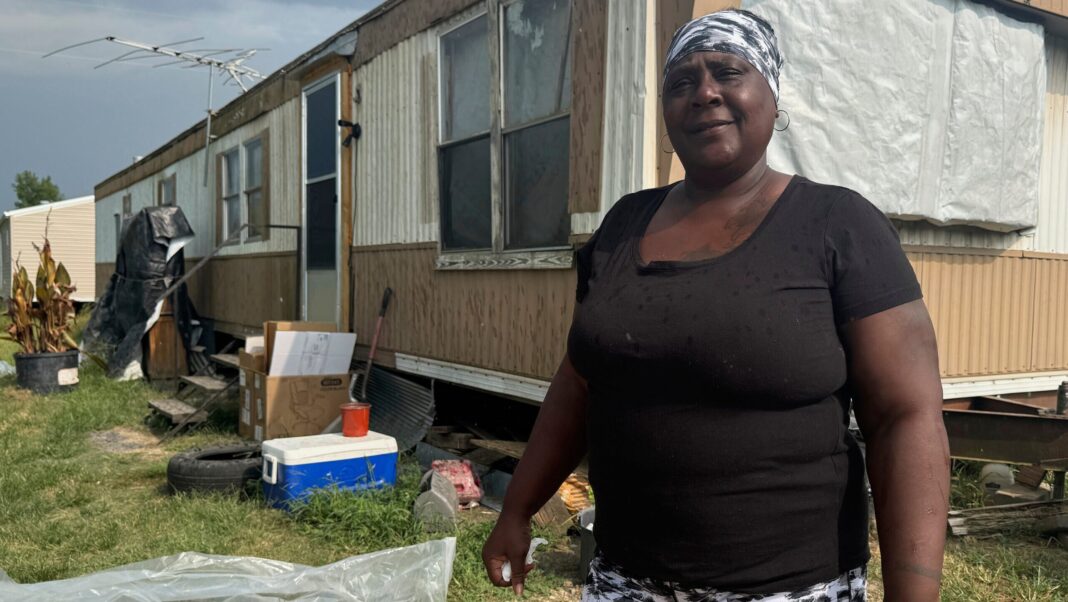In a rural corner of Louisiana, a massive transformation is underway as Meta embarks on constructing one of the world’s largest data centers. This monumental project, estimated at $10 billion, spans an area as large as 70 football fields and is poised to consume more electricity in a single day than the entire city of New Orleans during its peak summer demand. While the sheer scale of the data center in Richland Parish—a farming community home to about 20,000 residents—is striking, the intricacies of its operational and economic implications remain largely unseen.
Local watchdogs have raised alarms about the speed at which states are accommodating mega-tech companies like Meta, often at the expense of transparency and regulatory oversight. In Mississippi, for example, lawmakers permitted Amazon to bypass regulatory approval for energy infrastructure linked to its own $10 billion data centers. Similarly, Indiana is exploring a subsidiary focused on data centers that would operate outside the usual regulations. Although Louisiana has introduced some consumer protections, it still lags behind other states in safeguarding regular power consumers from the financial burdens associated with these expansive projects.
Mandy DeRoche, an attorney with Earthjustice, highlights the opacity surrounding these developments. She notes that confidentiality agreements and expedited approvals hinder the ability to track every detail—be it the benefits or potential negative impacts to local communities and service areas. “You can’t follow the facts, you can’t follow the benefits or the negative impacts,” she said, emphasizing the challenges posed by the current regulatory environment.
Private Deals for Public Power Supply
Meta’s partnership with the local power supplier, Entergy, includes plans for constructing three gas-powered plants capable of generating 2,262 megawatts. This output represents about one-fifth of Entergy’s current supply in Louisiana. The Public Service Commission recently approved this infrastructure plan, contingent on Entergy implementing measures to prevent a spike in residential energy prices. However, the specifics of Meta’s financial commitment remain cloaked in nondisclosure agreements, leaving many questions unanswered.
Despite attempts by consumer advocacy groups to demand transparency, Meta has resisted calls for sworn testimony or regulatory scrutiny. Regulatory bodies were able to review Meta’s contract, but the details remained confidential. Meta did not respond to inquiries regarding transparency, while Louisiana’s economic development agency and Entergy defended the use of nondisclosure agreements as a means of protecting sensitive commercial information.
Commissioner Davante Lewis, the lone dissenting voice during the approval vote, expressed his concern about the lack of clarity regarding the project’s long-term power requirements and economic promises, such as the projected creation of 500 jobs. He lamented, “There’s certain information we should know and need to know but don’t have.”
Adding to the controversy, under a new law that takes effect in 2024, Meta is exempt from paying sales tax, a move that could lead to “tens of millions” in lost revenue for the state. While Meta has committed to covering half the costs of the power plants over a 15-year period—excluding operational expenses—some fear this arrangement may ultimately leave residents financially vulnerable if Meta withdraws or fails to renew its contract.
The expectation is that all regional grid users will be responsible for the expenses allocated to constructing the $550 million transmission line servicing the data center. Ari Peskoe, director of Harvard University’s Electricity Law Initiative, argues that these tech giants should shoulder the full financial burden to prevent the public from “holding the bag” on unexpected costs.
How Is This Tackled in Other States?
In contrast to Louisiana’s approach, many states are laying groundwork to protect consumers from the rising costs associated with energy-intensive data centers. In Pennsylvania, the utilities commission is formulating a model rate structure designed to shield households from the financial impacts of such centers. New Jersey’s regulators are investigating whether these data centers are driving up costs for other users, while Oregon has recently adopted legislation compelling regulators to devise new, higher rates for data centers.
Furthermore, in June, Texas enacted a “kill switch” law, empowering grid operators to mandate that data centers lower their energy consumption during emergencies. Such measures reflect a growing recognition of the potential strain these facilities can impose on local infrastructure and economies.
Locals Have Mixed Feelings
Among the residents of Richland Parish, opinions about Meta’s data center are mixed. Some locals express trepidation about falling into a boom-and-bust economic cycle once the initial construction phase winds down. Others look forward to potential increases in funding for essential services like schools and healthcare. Meta has committed to investing in 1,500 megawatts of renewable energy in the state and pledges to contribute $200 million in water and road infrastructure improvements locally.
“We don’t come from a wealthy parish, and the money is much needed,” comments Trae Banks, whose drywall business has tripled in size since Meta’s arrival. Meanwhile, in the nearby town of Delhi, Mayor Jesse Washington remains optimistic about the long-term benefits for his community, stating that the data center will have a lasting positive impact on the local economy of 2,600 inhabitants.
Yet, the ongoing construction has brought challenges, such as increased traffic congestion and soaring property prices as developers rush to accommodate thousands of incoming workers. Sadly, the changes have displaced some low-income families, a situation highlighted by Mayor Washington as he navigates the community’s conflicting needs. “We have a lot of concerned people,” he acknowledges, “and I just want to see people from Delhi benefit from this.”



